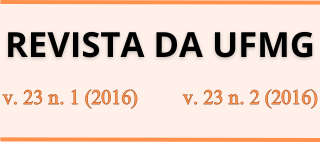Historical time reconfigurations
presentism, updatism, and loneliness in digital modernity
DOI:
https://doi.org/10.35699/2316-770X.2016.2770Keywords:
Presentism, Heidegger, UpdatismAbstract
To think about our present form of “experience of time” we intend to reflect on one of the main hypotheses about the current forms of temporality: François Hartog’s presentism. His symptomatology of contemporary points to a substantial break between the historicist-modern time, usually located in the 19th century, and an emerging “regime of historicity” which should be substantially different. We’ll raise some objections to this description and from the reading of Being and Time “Temporality and everydayness” argue that certain aspects of this “presentism” identified as a symptoms of a historic changing of experience can be derived from Heidegger’s temporality of “opening”(Erschlossenheit), in particular the dimension “inauthentic” or “improper”. Finally, we’ll present a reading of an episode of the Britain TV Show “Black Mirror” as a case study to verify the operation of the concept of “updatism” for understanding certain dystopias/utopias of a our present time. We are especially concerned with the ambivalent status of being social and alone simultaneously.




